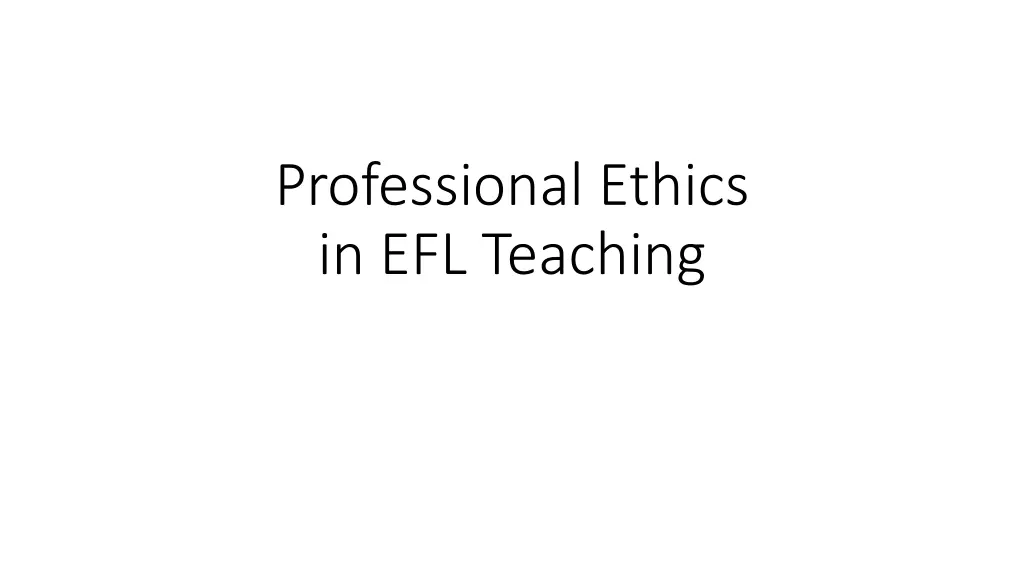
Professional Ethics in EFL Teaching: Fostering Trust, Respect, and Fairness
Explore the principles of professional ethics in EFL teaching focusing on trust, respect, and fairness. Emphasize commitment to students, fairness and equity, professional competence, integrity and honesty, boundaries and relationships, respect for colleagues, and responsibility to society and the profession.
Download Presentation

Please find below an Image/Link to download the presentation.
The content on the website is provided AS IS for your information and personal use only. It may not be sold, licensed, or shared on other websites without obtaining consent from the author. If you encounter any issues during the download, it is possible that the publisher has removed the file from their server.
You are allowed to download the files provided on this website for personal or commercial use, subject to the condition that they are used lawfully. All files are the property of their respective owners.
The content on the website is provided AS IS for your information and personal use only. It may not be sold, licensed, or shared on other websites without obtaining consent from the author.
E N D
Presentation Transcript
Professional Ethics in EFL Teaching
When considering professional ethics in teaching, it's important to focus on principles that foster trust, respect, and fairness between educators and learners.
Commitment to Students: Prioritize the welfare and development of students. Ensure that students are treated with respect, regardless of background, beliefs, or abilities. Promote student autonomy and critical thinking. Maintain confidentiality of student information and grades.
Fairness and Equity: Provide equal opportunities to all students. Be unbiased in assessments, feedback, and classroom management. Accommodate diverse learning needs and ensure inclusive practices.
Professional Competence: Stay updated on pedagogical methods and subject knowledge. Reflect on teaching practices to continually improve. Avoid teaching material beyond one's expertise without proper preparation.
Integrity and Honesty: Be transparent about expectations, grading criteria, and academic policies. Avoid any form of dishonesty, such as plagiarism or misrepresentation of credentials. Present academic material truthfully and objectively.
Boundaries and Relationships: Maintain appropriate professional boundaries with students to avoid favoritism or conflicts of interest. Avoid exploiting the teacher-student relationship for personal gain or influence. Be cautious about social media interactions with students.
Respect for Colleagues: Collaborate with fellow educators in a respectful manner. Share knowledge and resources without undermining others. Address disagreements professionally and constructively.
Responsibility to Society and the Profession: Contribute positively to the reputation of the teaching profession. Support the ethical standards of education. Serve as a role model in civic behavior, demonstrating respect for societal norms.
Confidentiality: Handle sensitive information with care. Avoid discussing student performance or personal information publicly without consent.
Non-Discrimination: Refrain from any behavior or teaching practices that could be perceived as discriminatory based on race, gender, religion, or other characteristics. Ensure that the classroom environment is safe for diverse ideas and expressions.
